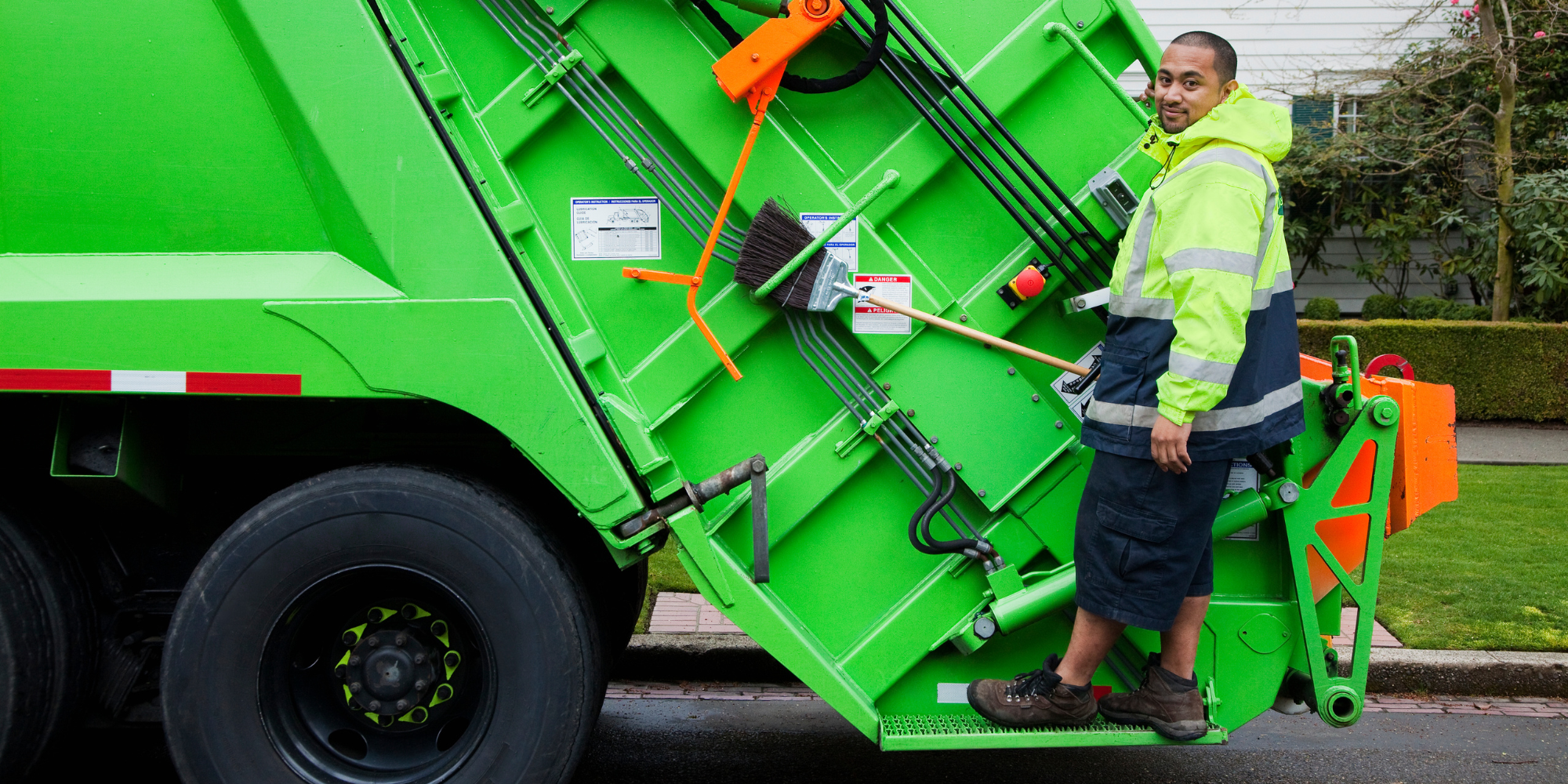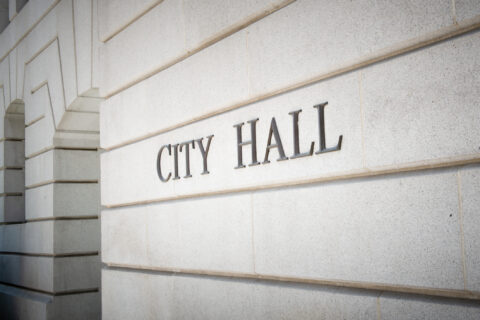Managing an effective solid waste and recycling operation is essential for the health and well-being of a city and its residents, but it can also represent a significant use of taxpayer dollars. In 2016, RUBICONSmartCity™ was launched with the goal of empowering local governments to maximize the potential and efficiency of city fleets while cutting down on wasted time, staff time, and costs to run this essential operation.
Over the last six years, Rubicon has spoken to nearly every solid waste department in the United States, deploying RUBICONSmartCity in over 80 cities nationwide. During this time, we have gathered data from each of these cities on the challenges, successes, and nuances of running solid waste operations of various sizes, budgets, and service offerings.
Here are the five key ways cities can improve waste management costs and operations:
1) Reduce Missed Pickups
The fastest way to improve the efficiency of any solid waste collection operation is to avoid missed pickups. A typical residential solid waste collection route may have as many as 1,200 homes. A missed pickup may require the driver to “go back” to a home twice in one day, significantly increasing costs. For many communities, go-backs occur day in and day out, and although the truck is still moving and isn’t technically idle, all that time, mileage, and fuel is unproductive. The best way to reduce missed pickups and unnecessary go-backs is to have a way to confirm that service was completed – or not completed – at every home.
In 2019, the City of Denton, Texas, partnered with Rubicon to deploy RUBICONSmartCity in its fleet of 78 sanitation vehicles. Within one year, the City saw a 70 percent decrease in unnecessary go-backs. This decrease resulted in over $158,000 in annual savings and 130 tons of carbon dioxide equivalent (CO2e) avoided through go-back reduction alone.
2) Optimize Routes and Services
Every city has physical factors that create unique route structures. Understanding these factors is critical in creating efficient routes. Rubicon has optimized recurring residential routes for dozens of cities and learned so much about how to best navigate those streets, alleys, and byways. In our experience, if your city hasn’t optimized its routes within the last five years, now is the time to do so in order to avoid unbalanced routes that lead to inefficiencies among drivers and promote speeding, crashes, injuries, and more.
In 2021, Rubicon worked with the City of Santa Fe, New Mexico, on a fleet optimization project in which we considered a range of factors, such as routes, personnel, and different resources such as sanitation trucks, to develop a more efficient operation. Rubicon and the City discovered that with the proper route optimization and allocation of resources, all routes could be picked up within a four-day workweek. Moving to this schedule improved morale among existing employees, attracted new high-quality talent to seek employment with the City, and reduced the City’s carbon footprint due to there being fewer trips to the landfill with half-empty trucks.
3) Schedule Bulky Collection
Bulky pickups can cause a major hindrance on the efficiency of any solid waste operation. Many solid waste operations across the US still use a model whereby trucks roam the city, looking for bulky waste set out on curbs. This model is inefficient. Instead, allow residents to schedule bulky waste service on set days and times. When residents schedule bulky pickups ahead of time, not only do customers adhere to the rules with greater regularity, but it reduces the need for trucks to drive every street in the city looking for bulky waste.
Rubicon helped the City of Kansas City, Missouri implement this in 2019. Citizens now schedule bulky items to be picked up ahead of time through an application on the City’s website, which relays the information to Rubicon automatically. City staff then use Rubicon to schedule, route, optimize, and assign that stop to a collection vehicle. Once the bulky pickup has been completed, Rubicon’s system sends the customer an email notifying them that their scheduled service has been completed. Since partnering with Rubicon, the City has logged more than 60,000 bulky pickups through Rubicon’s system and saved countless hours.
4) Empower Drivers
Drivers are one of the most pivotal components of any waste operation. Therefore, it is beneficial to empower them with as much information to make decisions that maximize pickups in real time. RUBICONSmartCity provides drivers with route assistance features which allow haulers to request assistance on uncollected stops from other drivers in the event of a truck breakdown or any other issue that may arise in day-to-day operations.
Maximizing efficiency in this way is also greatly beneficial for driver safety. Reducing the need for drivers to work long hours decreases driver fatigue, which helps cut down on accidents and injuries. This was the case with the City of Harrisonburg, Virginia, where decreasing route times by an average of 61 minutes resulted in a 50 percent decrease in workers’ compensation claims.
5) Enforce Ordinances
If your city has laws or ordinances relating to solid waste, make sure you are enforcing them. Cities with ordinances in place as to when waste and recycling containers can be set out, or mandates related to if and when go-backs can take place, are in a strong position for running efficient operations. But often, we see that these ordinances are not enforced, forcing solid waste staff to expend additional costs in getting trash off the streets. Having rules on the books is half the battle; measured enforcement is the other half.
The City of Spokane, Washington, saw success in this by using RUBICONSmartCity’s issue tagging feature to report excess bags being set out. Through documenting these extra setouts, the City was able to account for more than $2 million in annual revenue.
Bonus: Consider Fleet Electrification
Recently passed federal legislation provides several opportunities for local governments to convert their municipal fleets to electric vehicles or zero-emissions vehicles. The legislation includes a number of grants and programs, as well as an option for local governments to receive a direct payment for clean energy projects, which can be used to make investments in clean commercial vehicles.
Resource
Model Recycling Toolkit and Grants Available to Local Governments: The U.S. Environmental Protection Agency released a Model Recycling Toolkit to help communities increase participation in recycling programs and reduce contamination in the recycling stream. The Agency also launched two grant programs under the Bipartisan Infrastructure Law for public education and outreach and for improving solid waste infrastructure. The grant application deadline is Feb. 15, 2023. Learn more.
Learn More
RUBICONSmartCity has helped local governments nationwide collectively save millions of dollars, reduce CO2 emissions, and increase citizen satisfaction by improving the way they manage waste collection. Explore how they can help your city manage its heavy-duty fleets.
About the Author
Conor Riffle is the Senior Vice President of Smart Cities at Rubicon.









